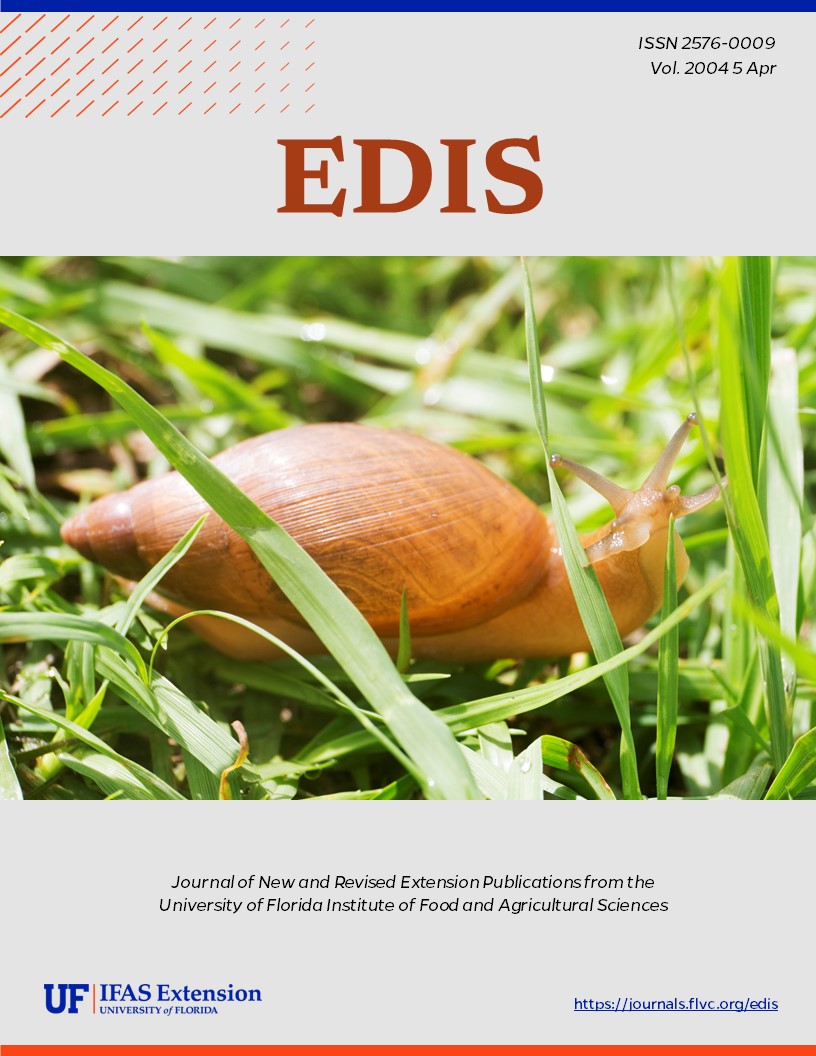Abstract
The Caribbean fruit fly, Anastrepha suspensa (Loew), has also been called the Greater Antilliean fruit fly, the guava fruit fly and the Caribfly. It is a near relative of the Mexican fruit fly, Anastrepha ludens (Loew), and is one of several species of fruit flies which are indigenous to the West Indies and the larvae of which attack several kinds of tropical and subtropical fruits. This document is EENY-196 (originally published as DPI Entomology Circulars 38 and 260), one of a series of Featured Creatures from the Entomology and Nematology Department, Florida Cooperative Extension Service, Institute of Food and Agricultural Sciences, University of Florida. Published: March 2001.
References
Baranowski, R. M., H. Glenn and J. Sivinski. 1993. Biological control of the Caribbean Fruit Fly (Diptera: Tephritidae). Fla. Ent. 76:245-251. https://doi.org/10.2307/3495721
Berg, G.H. 1979. Pictorial key to fruit fly larvae of the family Tephritidae. San Salvador: Organ. Internac. Regional Sanidad. Agropec. 36 p.
FDACS, Division of Plant Industry. "Caribfly control without fumigation." 3 p.
FDACS, Division of Plant Industry. "Controlling the Caribbean fruit fly in Florida." 1995. 4 p.
Greene, C.T. 1929. Characters of the larvae and pupae of certain fruit flies. J. Agric. Res. 38: 489-504.
Hennessey, M.K., R.M. Baranowski and J.L. Sharp. 1992. Absence of natural infectation of Caribbean fruit fly (Diptera: Tephritidae) from commercial Florida 'Tahiti' lime fruits. J. Econ. Ent. 85(5):1843-1845. https://doi.org/10.1093/jee/85.5.1843
Ibrahim, R.B. 1980. Fruit flies of Florida (Diptera: Tephritidae). Gainesville: Univ. of Florida. 355 p. Doctoral dissertation.
Mason, L.J., and R.M. Baronowski. 1989. Response of Caribbean fruit fly (Diptera: Tephritidae) to modified McPhail and Jacdson traps: effects of trapping duration and population density. J. Econ. Ent. 82(1):139-1442. https://doi.org/10.1093/jee/82.1.139
Nation, J.L. 1990. Biology of pheromone release by male Caribbean fruit fies, Anastrepha suspensa (Diptera: Tephritidae) J. Chem. Ecol. 16: 553-572. https://doi.org/10.1007/BF01021786
Pe a, J., and F. Johnson. (August 2000). "Insect Management in Guava." ENY-412. http://edis.ifas.ufl.edu/pdffiles/IG/I G07200.pdf. (December 29, 2000).
Phillips, V.T. 1946. The biology and identification of trypetid larvae (Diptera: Trypetidae). Hem. Am. Entomol. Soc. 12: 1-161, 16 pl.
Pruitt, J.H. 1953. Identification of fruit fly larvae frequently intercepted at ports of entry of the United States. Masters thesis. University of Florida, Gainesville. 69 p.
Stone, Alan. 1942. The fruitflies of the genus Anastrepha. USDA Misc. Pub. No. 439, Wash., D.C. 112 p., 23 pl.
State Plant Board of Florida Eleventh Biennial Report for the period July 1, 1934-June 30, 1936. 1937. p. 15-21.
White, I.M., and M.M. Elson-Harris. 1994. Fruit Flies of Economic Significance: Their Identification and Bionomics. CAB International. Oxon, UK. 601 p.
Unless otherwise specified, articles published in the EDIS journal after January 1, 2024 are licensed under a Creative Commons Attribution-NonCommercial-NoDerivs 4.0 International (CC BY-NC-ND 4.0) license.

